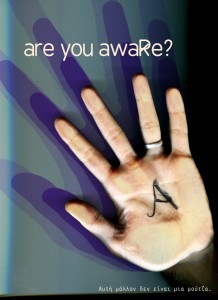My rating: 4 of 5 stars
“Thinking you can change yourself by changing your situation or your surroundings is like thinking you can change your handwriting by using a different pen.” (paraphrased)
I want to be more aware in my life. That’s why I had been looking for books on the matter a few months ago when I found this one. I ordered it from World of Books and for the first time they disappointed me: the book never arrived at my doorstep. Thirsty for thought-provoking material and wisdom shared aplenty, I looked for the book online and lo and behold, there it was in audiobook form.
To be exact, I didn’t find it exactly in audiobook form. In fact, the recordings I found were from some seminar in which Anthony de Mello presumably delivered the contents of this book to a crowd of wisdom-thirsty individuals such as myself over a period of a few days. I don’t know whether or not me listening to the recording of that seminar could count as actually reading the book, but for now it’ll have to do. See? I’m cheating and probably no-one will read this far to actually notice!
All that cleared up and taken out of the way, I most certainly did enjoy listening to Anthony de Mello’s lectures and his style. Of course, most of his teachings about the uselessness of language, the subjectivity of reality, the difference between the “I” and the “me”, the inherent selfishness of what we commonly refer to as love or falling in love etc. wasn’t anything new to me. In fact a lot of what I heard are deeply held beliefs of mine. But a lot of other things he mentioned are matters I will want to revisit, for I think they are as timely and deep as ever and a single listen cannot possibly contain their gravity, moreso because, as with all the great teachers, De Mello’s teachings and the new mentality he proposes are intoxicating in their truthfullness, but alas, one cannot handle and take in this much truth all at once. At any rate I believe he was right in warning the listener about the dangers of substituting one brainwash for another: the point is to always be aware and to forget about existing concepts. What would the difference between “enlightenment” and dogma be otherwise?
I can easily see myself revisiting this countless of times at random intervals in my life. It does feel like a flow of precious advice and living the way De Mello suggests feels deep within me like a precious ideal one would do well to strive for – or not strive for, since there should be no effort involved! I’m giving it 4 stars instead of 5 because it wasn’t anything groundbreaking for me – “just” a collection of profound, valuable insight.







